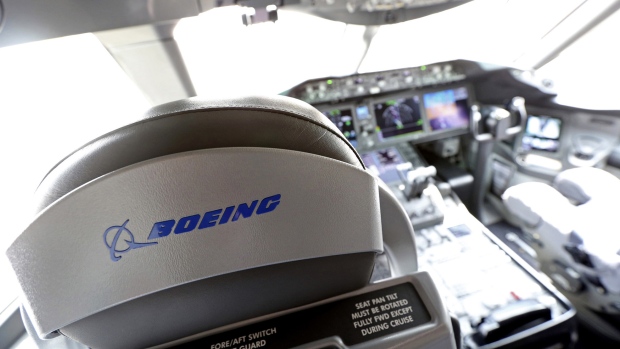Apr 12, 2019
EU targets US$12B of U.S. goods in Boeing-subsidy spat
, Bloomberg News

The European Union is considering hitting 10.2 billion euros (US$11.5 billion) of U.S. goods ranging from foods to helicopters with retaliatory tariffs in a dispute over subsidies to Boeing Co., according to a draft list seen by Bloomberg News.
The plan follows a U.S. threat to target US$11 billion of European goods ranging from helicopters to cheeses with import duties to counter state aid to Airbus SE. Both moves stem from parallel, 14-year-old, disputes at the World Trade Organization over market-distorting support for aircraft makers.
The European Commission, the EU’s executive arm, outlined its retaliation plan to trade experts from the bloc’s national governments on Friday in Brussels, an official said on the condition of anonymity because the deliberations were behind closed doors.
The WTO will ultimately determine the amounts of imports that both sides would be allowed to target in the two cases. On April 9, the commission dubbed the U.S. aim of hitting US$11 billion of imports from the EU “greatly exaggerated.”
The renewed transatlantic wrangling over aviation subsidies heightens EU-U.S. trade tensions prompted by President Donald Trump’s “America First” protectionism, especially his controversial duties on foreign steel and aluminum based on national-security grounds and his threat to apply automotive levies on the same basis.
An escalation of transatlantic commercial tensions would in turn add risks to a global economy already suffering from Trump’s bigger trade war with China. In a Twitter post on April 10, Trump called the EU “a brutal trading partner.”
So far, the EU has applied tit-for-tat tariffs on 2.8 billion euros of American goods in response to Trump’s metal duties and threatened to hit a further 20 billion euros of U.S. products with levies should Washington restrict automotive imports.
To counter the threat of U.S. duties on foreign cars and auto parts, commission President Jean-Claude Juncker reached a truce with Trump last July in which both sides pledged to work toward scaling back transatlantic market barriers including tariffs on industrial goods.
EU governments advanced that plan on April 11 when their ambassadors to the bloc gave the go-ahead for European trade chief Cecilia Malmstrom to negotiate cuts in industrial tariffs. The envoys also approved a mandate for her to seek deeper EU-U.S. regulatory cooperation.










